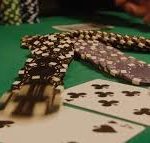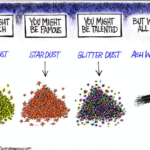Authenticity in ‘world music’
Reading about authenticity for this week’s topic, I remembered the case of the ‘world music’ label and the marketing of authentic ‘Other’ music to Western markets. Benin singer Angelique Kidjo’s music is usually categorised as Afropop or ‘world beat’. Her collaborations with rappers and musical explorations have been criticised as being ‘inauthentic’, seeing her as ‘selling out’ to the global market. Nonwestern musicians who depart from their assumed origins are often subject to such criticisms as well as the risk of losing their ‘world music’ audience (Taylor, 1997). World musicians are subject to particular scrutiny and the imposition of notions of authenticity, which freeze them in time and ignore the fact that they are artists subject to contemporary influences. Kidjo’s critics revealed old ideas about Others and their cultures. One of the constructions of authenticity in ‘world music’ is linked with notions of primitivism – as Kidjo notes in the article: “he thought I was going to have a bone through my nose. He believed all Africans still lived in mud huts”. Taylor describes world musicians such as Kidjo as using inauthenticity as a strategy, showing that their country and culture is not static and premodern but just as capable to create ‘postmodern’ cultural forms as the west.
I’m attaching a 2010 Guardian article about Kidjo as well as a link to some of her performances/music videos:
https://www.theguardian.com/music/2010/apr/29/angelique-kidjo-oyo
Live performance of “Shango Wa”:
“Wombo Lombo”:
See also:
Taylor, T. D. 1997 ‘Strategic inauthenticity’. In Global pop: world music, world markets. New York: Routledge.
Contributed by Anna EstelPoloni on 13/02/2017







Hi Anna,
I really like the Shango Wa song. As I mentioned in class last week, some of these issues have also been discussed by Gordon Mathews in his Global Culture / Individual identity, Chapter 2: What in the world is Japanese?